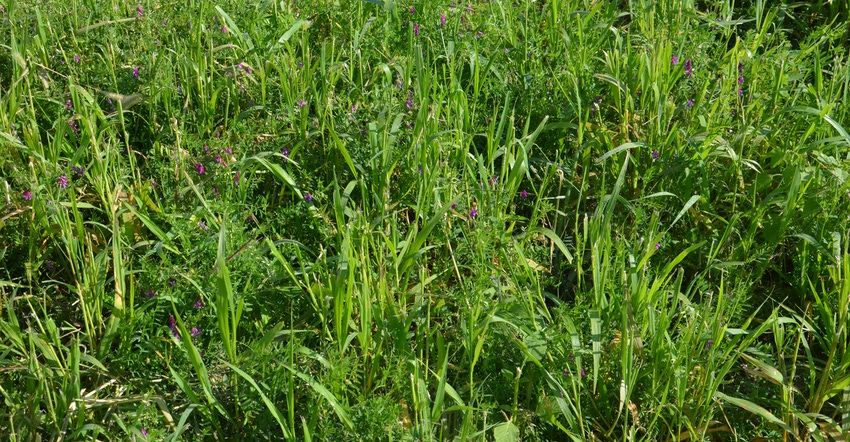
If you’re a disciple of cover crops, hearing someone say they don’t always help control weeds may sound like fighting words. Yet if you’re a researcher trying to document whether cover crops help control weeds, concrete data can be hard to find.
Bill Johnson, a Purdue University Extension weed control specialist, has found himself on all sides of this issue. Johnson and Joe Ikley, a weed science program specialist at Purdue, along with several graduate students, are taking a hard look.
Search for answers
Here is Indiana Prairie Farmer’s exclusive interview with Johnson, outlining what he and his staff have learned so far in relation to cover crops and weed control.
Is it true that cereal rye tends to suppress marestail? Yes, we have seen that in our work. The fact is that any competitive fall-emerging plant tends to suppress marestail. We have even seen it suppressed by other winter annual weeds, such as chickweed or henbit. If you can provide competition in the fall, you can help keep [marestail] in check.
Have you seen the same results for suppression of weeds in the pigweed family, including tall waterhemp and Palmer amaranth? No. Suppression of these weeds by cover crops has been all over the board. Sometimes we have seen a benefit. Then other times weed problems were actually worse where a cover crop was used compared to the check. The cover crop can interfere with herbicide application and provide a moist environment for germination of summer annuals.
What would cause control of these tough plants to be worse with a cover crop? We don’t have concrete answers at this point. However, it may have to do with preventing residual herbicides from reaching the soil where weed seeds are located.
People look at data from other states that support cover crops controlling weeds and think it should work here. Why is that not always the case? Researchers in Tennessee, for example, have seen somewhat better results suppressing pigweeds with cover crops. The problem is that both the environment, including amount of rain and rainfall patterns, and weed mix are different. You can’t assume that what works there will automatically work here.
What are you doing at Purdue to learn more about cover crops and weed control? Three of my six graduate students are working on projects related to learning more about cover crops and weed suppression. We are investing over $100,000 this year in these trials. I get lots of questions about whether cover crops will help suppress weeds, and some people aren’t happy if we can’t endorse a certain practice. We need data before we can say something. Plus, in many cases, tillage is not an option, and we need other alternatives to help herbicides control weeds.
What can you say so far? Suppressing marestail with cereal rye looks like a good deal. Beyond that, so far our results are inconsistent on summer annual weeds that emerge later in spring.
About the Author(s)
You May Also Like




